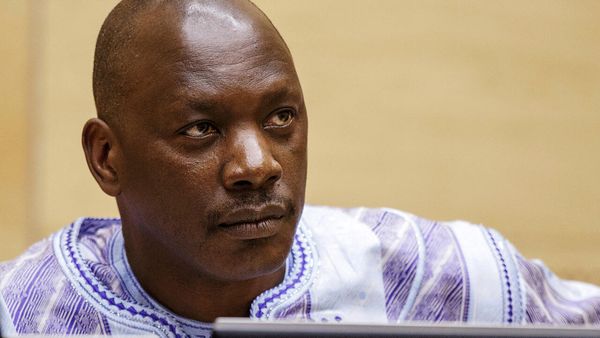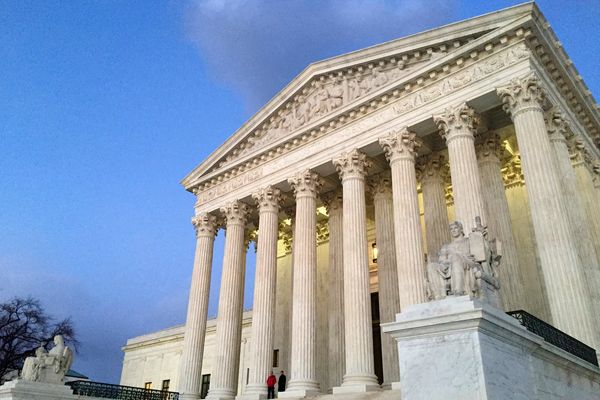
Bitcoin mining exists primarily to build a global digital network for storing value without the need for a bank or other intermediary, and for peer-to-peer exchanges. It's also one of the most environmentally friendly industries in the world.
The Cambridge Center for Alternative Finance estimates that global Bitcoin mining uses less than 0.2% of the world’s energy production—roughly comparable to all refrigerators in the U.S. and far less than data centers and data networks generally.
In other words, it uses a very small amount of energy in the grand scheme of things—and nearly 60% of what it does use comes from renewable sources, according to data published by the Chamber of Digital Commerce. Bitcoin mining also helps create a marketplace for intermittent sources such as solar and wind during their off-peak hours.
Furthermore, unlike other data centers, mining facilities can shut down at a moment’s notice during high-demand events such as extreme weather to provide grid stability and prevent the use of fossil-fuel powered peaker plants.
Yet the current administration, fringe politicians, and environmental groups are singling out Bitcoin mining by attempting to limit access to energy and imposing or proposing taxes so high the industry will have ever reason to leave the U.S. entirely. And that's assuming they don't try to ban it altogether.
These critics are now citing “marginal emissions” data, which is merely cherry-picking businesses they don't like for political reasons, and saying that those businesses use too much energy. To be clear, Bitcoin mining does not emit anything—it requires computers, which use electricity just like any other data center.
To say these policy proposals and their tortured justifications are misguided would be the kindest possible reading. Their effects would be devastating to the environment, the economy, and U.S. national security.
Relative to other leading Bitcoin mining jurisdictions, the U.S. has an extremely clean energy grid. Texas is a leader in Bitcoin mining and the home of Riot Platforms’ operations, the largest Bitcoin mine in North America. According to the American Clean Power Association, Texas led the nation in renewable energy capacity added in 2021—close to three times that of second-place California.
Pushing Bitcoin mining offshore, under the guise of environmentalism, would only mean the U.S. will capture less of Bitcoin’s value, and more mining will happen connected to dirtier energy grids in more hostile parts of the world. For example, Russia is infamous for not only fossil fuel production and its use of energy for political brinksmanship, it's among world leaders in leaking methane into the atmosphere. It's already among the top five Bitcoin mining jurisdictions and seeking more market share. Weakening the American Bitcoin mining industry would be an enormous gift to Russia—and increase global carbon emissions.
That leads to the national security issue. As noted in a recent Justice Department report on cryptocurrencies, America has strong anti-money laundering rules and ensures that as people move Bitcoin value from the network in and out of traditional accounts, it is traceable—nefarious actors can be caught, unlike in other parts of the world. Russia, for example, is a world leader in ransomware attacks and the abuse of cryptocurrency, as well as traditional financial intermediaries. Keeping Bitcoin mining in America means that more value will be captured by highly regulated U.S. companies and law-abiding individuals simply interested in optionality when it comes to storing and transferring value.
Bitcoin mining has created thousands of jobs. Riot alone employs approximately 500 people, many in Rockdale, Texas, a community previously suffering from the closure of a large industrial aluminum-smelting plant. Riot is now helping to support a program with the Texas State Technical college to upskill the local workforce with programs in computer repair and programming.
Bitcoin mining is a bourgeoning industry that's good for the environment, the economy, and national security. Attacks from nefarious political forces should be rejected to maintain America’s leadership role in the digital economy.
Jason Les is the CEO of Riot Platforms, Inc., the largest publicly traded Bitcoin mining enterprise in North America by market cap. Brian Morgenstern is Riot's head of public policy and was a senior adviser and deputy assistant secretary of the Treasury from 2017 to 2020. The opinions expressed in Fortune.com commentary pieces are solely the views of their authors and do not necessarily reflect the opinions and beliefs of Fortune.







